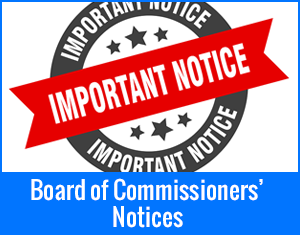- By Quintana Stewart
- Posted Wednesday, April 29, 2009
H1N1 Influenza Efforts in Forsyth County
Public Health leaders and first responders in Forsyth County are watching the H1N1 Influenza infection cases across the country and are getting ready in case the disease spreads further. A group met first thing Tuesday morning to discuss the current situation of H1N1 Flu and to review local plans and strategies. Representation from public health, emergency management, law enforcement, fire, school system, local colleges/universities, EMS, Red Cross, and area hospitals were in attendance.
No cases of H1N1 Flu have been confirmed in the County or even in the State at this time. Human-to-human transmission of H1N1 flu can occur in the same way seasonal flu occurs in people, which is mainly person-to-person transmission through coughing or sneezing of people infected with the influenza virus. People may become infected by touching something with flu viruses on it and then touching their mouth or nose.
Public Health officials are asking residents to follow the same health precautions they take during any flu season. Take these everyday steps to protect your health:
- Cover your nose and mouth with a tissue when you cough or sneeze. Throw the tissue in the trash after you use it.
- Wash your hands often with soap and water, especially after you cough or sneeze. Alcohol-based hand cleaners are also effective.
- Try to avoid close contact with sick people.
- If you get sick with influenza, stay home from work or school and limit contact with others to keep from infecting them. Avoid touching your eyes, nose or mouth.
People who have recently traveled to Mexico, California, Texas, New York City, Kansas, Arizona, Indiana, Massachusetts, Nevada, Michigan, or Ohio AND develop flu-like symptoms should contact their health provider and inform them of their travel to those areas. At this time, CDC recommends that U.S. travelers avoid all nonessential travel to Mexico. The symptoms of H1N1 flu in people are similar to the symptoms of regular human flu and include fever, cough, sore throat, body aches, headache, chills and fatigue. Some people have reported diarrhea and vomiting associated with H1N1 flu. Like seasonal flu, H1N1 flu may cause a worsening of underlying chronic medical conditions.
To diagnose H1N1 influenza A infection, a specific test (not the rapid office test) should be performed to detect the H1N1 virus. Identification as a H1N1 flu influenza A virus requires sending the specimen to the NC Public Health laboratory for testing. The test should be run within the first 4 to 5 days of illness (when an infected person is most likely to be shedding virus). However, some persons, especially children, may shed virus for 10 days or longer. People should only seek testing for H1N1 flu if they have traveled to affected areas and develop flu-like symptoms or has been in close contact with someone that meets this criterion.
CDC recommends the use of oseltamivir (Tamiflu) or zanamivir (Relenza) for treatment of infection with the H1N1 influenza virus. Antiviral drugs are prescription medicines (pills, liquid, or an inhaler) that fight against the flu by keeping the flu viruses from reproducing in your body. If you get sick, antiviral drugs can make your illness milder and make you feel better faster. They may also prevent serious flu complications. For treatment, antiviral drugs work best if started soon after getting sick (within 2 days of symptoms).
Public Health officials strongly discourage residents from stockpiling antiviral medication. Medication should be readily available only for individuals diagnosed with influenza and their close contacts.
The recent events around H1N1 Flu have resulted in the declaration of a National Public Health Emergency, so residents are encouraged to make preparations to help lessen the impact of this event on you and your family. Plans should include:
- Store a two week supply of water and food. During a health emergency, if you cannot get to a store, or if stores are out of supplies, it will be important for you to have extra supplies on hand. This can be useful in other types of emergencies, such as power outages and disasters.
- Periodically check your regular prescription drugs to ensure a continuous supply in your home.
- Have any nonprescription drugs and other health supplies on hand, including pain relievers, stomach remedies, cough and cold medicines, fluids with electrolytes, and vitamins.
- Talk with family members and loved ones about how they would be cared for if they got sick, or what will be needed to care for them in your home.
- Volunteer with local groups to prepare and assist with emergency response.
Click here for more information about influenza prevention efforts in North Carolina. Click here for more information about the on-going H1N1 flu event nationally.






